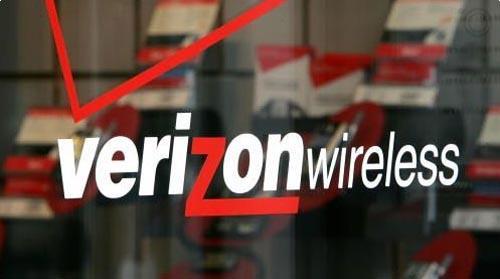
Over the years, voice calling has taken a back seat to data usage and text messaging. It is often easier and quicker to send someone a message (text or instant) or an email over placing a time consuming voice call that usually leads to pointless banter. What this has effectively done is take its toll on wireless providers' networks, which were initially built to withstand a mass of simultaneous voice calls ... not the constant barrage of over-social datamongers.
The first real solid evidence of this transition into the data era was with AT&T's iPhone debacle in New York. The iPhone caused a major stir in New York City; there were so many users gobbling up heaps of data that Ol' Blue's network couldn't handle it anymore. Users were having trouble placing calls and sending or receiving text messages, much less browsing the web or tweeting. It was similar to a panic surrounding a national scare (like 9/11) – where so many people place calls and send texts at the same time that the network bottlenecks – but it was happening all day … every day. The issue was eventually solved by AT&T halting iPhone sales within the city and diverting much of their engineers' attention to the area to strengthen the network in the area as fast as possible.
This is essentially what is happening on a national level now. Wireless providers are currently overwhelmed with all of the attention smartphones and data have received recently. Despite networks not being strong enough to handle the tens of millions of customers heavily using smartphones, providers are still pushing smartphones and tablets as hard as they can – ultimately because they're much more lucrative than feature and messaging phones.
As a result, they have finally cornered themselves. This is where the arms race for the fastest and most data efficient network began. Hello, “4G.” Notice how quickly 4G has spread in relation to the previous generations. The problem is, not everyone will adopt 4G right away. It is still limited by reach, and existing 3G networks are still taking the biggest portion of the damage. In an attempt to both turn a larger profit and salvage their existing, battered networks, wireless providers are currently transitioning away from the much-loved unlimited data plans for much more expensive and limiting tiered data structures.
Tiered data, for a lack of better words, sucks. Users constantly have to monitor usage and can hardly use their smartphones to their fullest potential. Who benefits the most from data caps? The carriers, obviously. Much of the stress is taken off (or the rate at which stress being added is slowed) of their networks and tiered data is much more profitable than unlimited higher allotments bring a bigger pay check, along with overages. In no way – that I can think of, at least – is tiered data a compromise for carriers.
For customers, on the other hand, the only benefit of tiered data is that light users can sometimes get by with having a smartphone for slightly cheaper than they could have before. As an example, both T-Mobile and AT&T offer 200MB data plans which are $10 and $15 per month respectively. Unlimited data used to go for $30 per month across the board. In cases like Verizon's newly introduced data plans, however, it can be outrageously expensive to own a smartphone (i.e.: $50 and $80 for Verizon's 5GB and 10GB plans respectively). Their smallest data plan is 2GB of usage for $30 per month.
Carriers follow demand; data is the new “minutes” and caps are here to stay. Since this is the case though, they should at least compromise with consumers – who gain little from data caps. But how do they compromise? For one, Aaron had an interesting take with free, unlimited data on nights and weekends. There should also be a truly unlimited option, however expensive it may be. For instance, drawing the line for data caps at 5GB and offering “truly unlimited data” for a premium price would be a nice medium. Even shared family data would be nice. There are several ways providers can meet consumers in the middle and offer promotional features that make the tiered transition a little less painful. We're still pushing through economic hardships and every little bit helps.
As futile as the argument may be, it's one we all need to be on board with. How do you feel about tiered data? Do you think carriers could be a little more mindful of consumers and their wallets? How should they compromise?